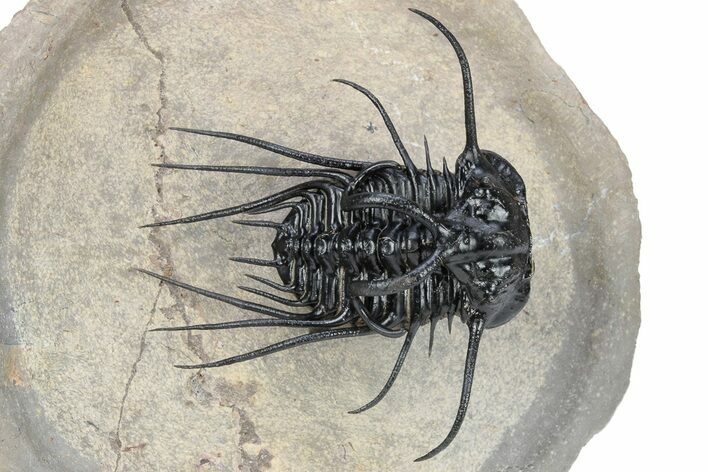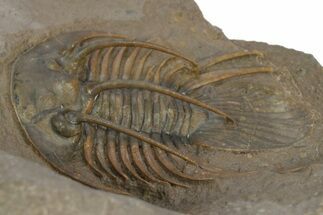This Specimen has been sold.
3.3" Bizarre Dicranurus Trilobite - Spectacular Preparation
This is bizarre trilobite looks like something you might see in an Aliens movie. It's fittingly named Dicranurus monstrosus. While fakes of this trilobite abound, real examples like this one are fairly rare, and ones of this quality don't come around very often.
This is a very nice, large example of the species at 3.3" wide. The preparation is spectacular leaving it "flying" above the limestone on a stone pedestal. Total restoration is only about 1%.
This is a very nice, large example of the species at 3.3" wide. The preparation is spectacular leaving it "flying" above the limestone on a stone pedestal. Total restoration is only about 1%.
About Trilobites
Trilobites are an extinct class of marine arthropods that thrived for nearly 270 million years, from the early Cambrian to the end of the Permian period (around 521 to 252 million years ago). They are one of the most successful and diverse groups in the history of life, with over 25,000 described species spanning a wide range of sizes, shapes, and ecological niches. Known for their distinctive, segmented exoskeletons, trilobites provide invaluable insights into the evolutionary history of arthropods and the dynamics of ancient marine ecosystems.
Trilobites are an extinct class of marine arthropods that thrived for nearly 270 million years, from the early Cambrian to the end of the Permian period (around 521 to 252 million years ago). They are one of the most successful and diverse groups in the history of life, with over 25,000 described species spanning a wide range of sizes, shapes, and ecological niches. Known for their distinctive, segmented exoskeletons, trilobites provide invaluable insights into the evolutionary history of arthropods and the dynamics of ancient marine ecosystems.
SPECIES
Dicranurus monstrosus
LOCATION
Atchana, Morocco
FORMATION
Lhandar Formation
SIZE
3.3" wide, 2.9" long
CATEGORY
SUB CATEGORY
ITEM
#222192
We guarantee the authenticity of all of our specimens.
 Reviews
Reviews
















